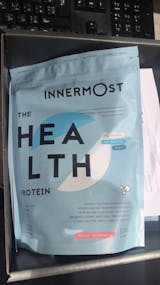The sun is shining, the birds are chirping and the daffodils are waving gently in the breeze: that’s right, spring is officially here. And that means that Easter is just around the corner.
There's absolutely nothing wrong with enjoying some chocolate, hot cross buns and simnel cake - this holiday comes but once a year after all, and we all deserve something sweet now and then. But, if that's the route you want to go down, it's important to be aware that the enjoyment of these treats over Easter can mean sugar - and lots of it.
Navigating Easter and your exercise routine
If you’re working hard towards hitting your fitness goals, are trying to get in shape, or are dedicated towards keeping your body and mind as nourished as possible, you might be considering healthier alternatives to the sugar and carb fest that is Easter.
So, with this in mind, the idea for this Insight was born. In this article, we’ll explore why eating sugar should be taken with a grain of salt and explore some healthy Easter treats which are great alternatives to chocolates upon chocolates upon chocolates.
How much sugar is too much?
A 2008 study in the US showed that adults consumed an average of 76.7g of sugar a day, which is around 19 teaspoons or 306 calories.
According to the NHS, adults should be eating no more than 30g of free sugar a day. Free sugar refers to sugar that’s added to drinks and food, as well as sugar that occurs naturally in foods such as honey, maple syrup and fruit juices. Sugar should make up no more than 5% of the calories that you get from eating and drinking every day. For a visual reference, 30g is roughly the equivalent of seven cubes of sugar, or seven teaspoons worth. This is approximately 112 calories.

It’s important to differentiate between added sugar and foods that contain naturally occurring sugars, such as fruits and vegetables. These are healthful foods and contain vitamins and nutrients, fibre and water, as opposed to pure sugar.
When you consider that a can of Coca Cola contains 140 calories from sugar and that a Snickers bar contains 120, you can quickly see that this doesn’t give you a lot of wiggle room in terms of consuming added sugar in your diet. And over-consuming added sugar can lead to tooth decay, certain types of cancer, obesity, type 2 diabetes, heart diseases and non-alcoholic fatty liver disease.
Our favourite healthy Easter swaps
Looking for healthy Easter egg alternatives? Whilst a good old fashioned Easter egg is hard to top, to ensure that your Easter weekend gets off to a healthy start, begin your day with a breakfast that will fuel you for the hours ahead. If you eat a good breakfast, you’re less likely to be ravenous later in the day and more likely to make healthy choices overall.
A delicious protein porridge alternative
Looking for a healthy Easter breakfast option? Trust us, there are plenty of great Easter alternatives. For example, rather than reaching for a hot cross bun, try porridge with a scoop of our protein powder and a plant-based milk for a meal that will fill you up and nourish you. If you want to, add some cinnamon and raisin, or maybe even treat yourself to a healthy Easter recipe of a cooked breakfast, but grilled instead of fried. Grilled mushrooms, tomatoes and a slice of toast is both celebratory and good for you.
Swap for a darker chocolate option
Just because you’re looking for healthy Easter ideas doesn’t mean you can’t have chocolate.
We’d definitely recommend trying the smooth chocolate versions of our protein powders for when that cocoa craving hits, such as The Lean Protein - a delicious breakfast, snack or sweet treat for after a workout (or at any time, really!)
Similarly, if only a foil-wrapped treat will do, though, look for chocolate eggs that have a high cocoa content. This tends to mean that they’re lower in sugar and milk and have higher quality ingredients. You can even find chocolate bars which are 100% cocoa, giving you that intense, chocolatey taste that you’re looking for.
Add all of the fruits
For a healthy Easter swap that is both delicious and colourful, why not gather a cornucopia of brightly exotic fruits for your Easter table?
This season is all about pastels and bright colours, after all, and we’re sure the Easter bunny would approve of a basket filled with nature’s candy instead of the sugary stuff that’s so much worse for you.
Consider trying some fruit that you don’t eat every day, such as guava, papaya, passion fruit, blood orange, starfruit, sharon fruit and pomegranate. It will still feel like a treat, but without the added sugar.
Summary
Whilst it's always good to make a healthy swap where you can, it's really important not to over-restrict yourself. Life is for living, and if you want a hot cross bun for breakfast - go ahead and indulge.
Like we always say, everything in moderation, in every healthy diet there should always be room for treats, no matter your fitness regime and goals! A healthy diet is a balanced diet, after all, and one hot cross bun or one too many Easter eggs will never undo all your hard work and progress. Remember that!
























